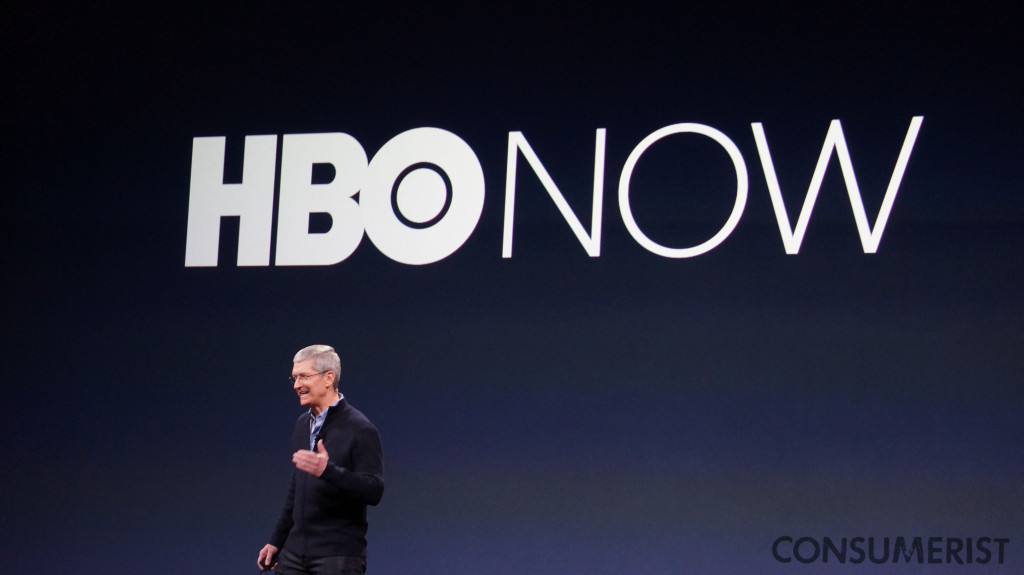The HBO Now Announcement Shows Why Net Neutrality Is So Important Image courtesy of Apple CEO Tim Cook presents HBO Now at today's press conference to launch the Apple Watch.

Apple CEO Tim Cook presents HBO Now at today’s press conference to launch the Apple Watch. (Photo: Glenn Derene/Consumer Reports)
For months, HBO had been giving every indication that HBO Now would be sold through pay-TV providers. In Nov. 2014, HBO CEO Richard Plepler said there was “gold in the hills” for cable companies in a standalone HBO streaming service. These companies control broadband access for most consumers so they could make money by selling subscriptions to it.
But then the network decided to go with Apple, which is not an ISP for its launch partner. That makes some sense for both parties — it gives HBO immediate access to millions of iPhones, iPads, and Apple TVs (along with PC users) and some time to hammer out the details of making HBO Now work on the wide variety of Android devices. And Apple only stands to make money from the deal, as it doesn’t have pay-TV subscribers to lose.
So how does this all tie into neutrality?
HBO didn’t just cut out — at least initially — the pay-TV companies that stand to lose subscribers who’ve only been holding on to basic cable packages for the sake of maintaining HBO access. Those same pay-TV providers control the pipes through which HBO Now will stream.
Without net neutrality, ISPs like Comcast, Time Warner Cable, Verizon, Charter, Cablevision, and others could choose to block subscribers’ access to any content these companies choose to block. To a slightly less-evil degree, they could slow down HBO Now to the point where it’s not a good substitute for the HD picture you get through cable.
(NOTE: Under the conditions of its 2011 merger with NBC, Comcast is still currently bound by the 2010 net neutrality rules, which are effectively no different than the ones recently voted on by the FCC. That merger condition expires in 2018; hopefully the new neutrality rules will still be in place.)
In theory, an ISP could throttle HBO Now while still allowing HBO Go to get through at full speed, effectively saying that the only way to get a decent HBO streaming service is if you have a cable package.
And since many consumers have little to no choice about their home broadband provider, they can’t just say “I’ll get my Internet access elsewhere.”
Thankfully, the recently agreed-upon neutrality rules prohibit ISPs from blocking and throttling, meaning that HBO Now should be treated the same as HBO Go, YouTube, Netflix or that video your friend sent you of his baby throwing a cup of applesauce at a clown’s face.
Without these rules, it would be a futile effort to launch a service that gives millions of consumers a reason to ditch their cable bills but which still relies on those same companies to deliver that service.
The cable companies will undoubtedly come around to seeing that there is money to be made by selling these streaming services as add-ons to broadband packages. Until then, be thankful that they won’t be allowed to put up an electronic blockade to keep the competition out.
Want more consumer news? Visit our parent organization, Consumer Reports, for the latest on scams, recalls, and other consumer issues.

